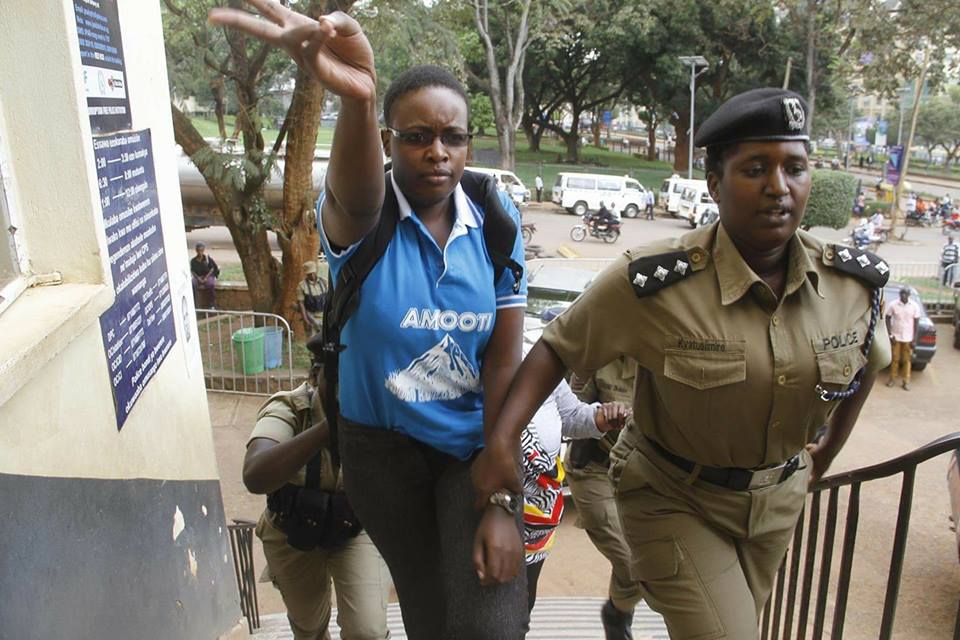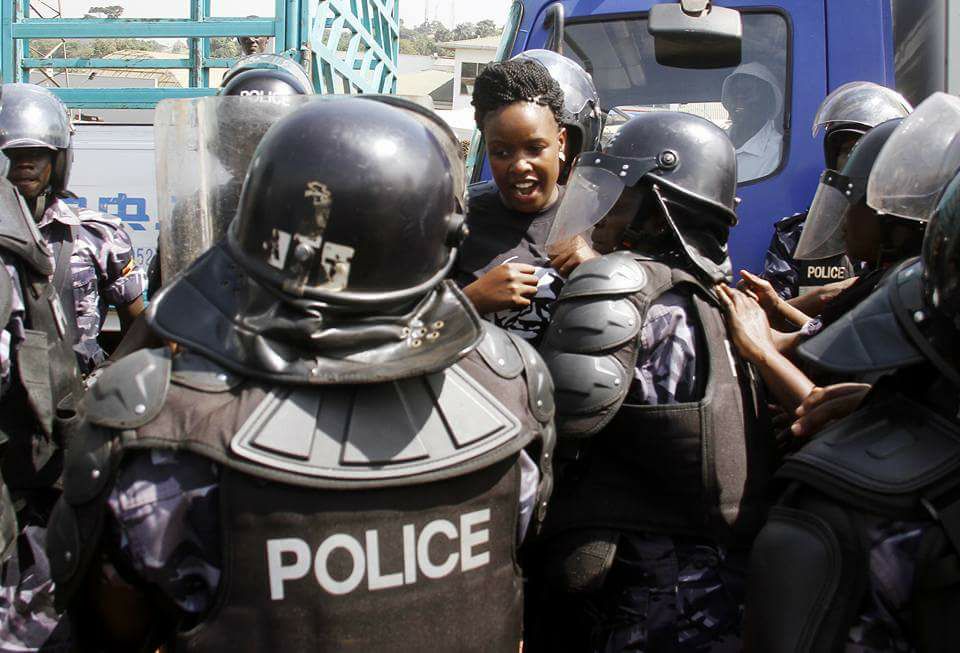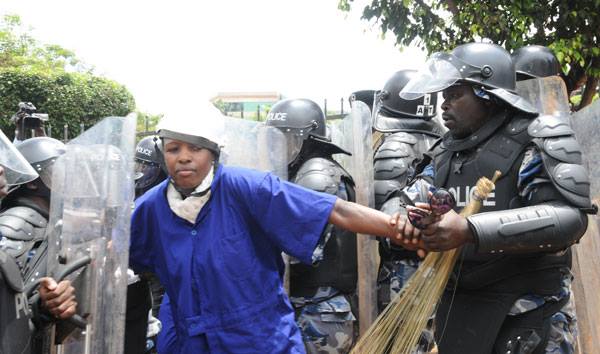 Activists are perhaps the most revered and reviled people on Uganda’s political stage today. To the vast majority, activists are seen as sharing the burdens, hopes and aspirations of the dispossessed in their struggle to regain sovereignty.
Activists are perhaps the most revered and reviled people on Uganda’s political stage today. To the vast majority, activists are seen as sharing the burdens, hopes and aspirations of the dispossessed in their struggle to regain sovereignty.
To the dictator, a section of the ‘elite’ and the moderate opposition, they are a specter that must be exorcised at all costs.
Why activism is under siege
The aim of activism is to expose social ills and mobilize people to take direct action to redress the situation; in so doing, activism empowers the dispossessed, people do not feel helpless, they speak directly to power in no uncertain terms.
The offensive we see today against activism is because the Power’s cage has been rattled. Power fears an informed and emancipated citizenry.
Some moderate opposition fear power’s backlash, others are perennial procrastinators and still others are outright fifth columnists and some elites fear losing their intermediary status. They all consciously or otherwise find themselves at war with activists.
The despot leads the charge through brute force and propaganda, he makes a distinction between ‘good’ and ‘bad’ opposition. According to his narrative, the moderates are the good opposition who are lauded as being reasonable, responsible and progressive!
The activists he caricatures as a bunch of deplorable and irresponsible extremists that are just out to cause chaos. Having cast them in such light, he uses brute force against them and blames them for the violence! The perpetrator blames the victim; ‘’we are not against the opposition. We are against elements in the opposition that are bent at disrupting public peace, ‘’ the despot claims!
The moderates having been showered with praises, come to believe that the power of diplomatic niceties can convince the oppressor to concede space and loosen his choking grip without a serious fight. They apportion part of the blame for the sad situation on activists for pushing the dictator into taking extreme positions that threaten to roll back the gains made thus far.
 They join the chorus of condemning activists for being provocative and therefore deserving the rough treatment they get! To them, activism is nothing but populist antics aimed at gaining cheap popularity among dirty slum dwellers and the hungry peasants. They do not hide the hatred they have for those they aspire to lead.
They join the chorus of condemning activists for being provocative and therefore deserving the rough treatment they get! To them, activism is nothing but populist antics aimed at gaining cheap popularity among dirty slum dwellers and the hungry peasants. They do not hide the hatred they have for those they aspire to lead.
This leads to activists feeling betrayed by their colleagues who use a language not so dissimilar from that of the despot to describe them thus straining the relationship between the two groups. The beneficiary in all this is the Despot, he can move forcefully against the activists and count on the moderates’ feeble disapproval, splitting the blame equally between the two or even their secret satisfaction.
The elites who too loath ordinary people, expect people to treat them with difference and flattery and crawl to them for satisfaction. They get alarmed when they see people take direct action without paying much attention to them. They pour scorn on what activists are doing and prophesy how it is doomed to fail!
The other section of the elites especially those in the power brokerage business, out of sheer opportunism ally themselves with the despot for personal pecuniary benefit.
The activists are then maligned as people who are only interested in power but do not even know how to get it. They are accused of inhibiting the efforts of giants to stand tall. How can political ‘Zacchaeuses’ prevent giants from being seen?
These contradictions are not peculiar to our struggle. All struggles across time and space have encountered such stresses and strains.
In the solitary confinement of his Birmingham jail, Dr Martin Luther King Jnr penned a letter to his fellow clergy that were accusing him of being radical and a rabble rouser. His response was simple; ‘if radicalism is for a positive cause, then it is noble.’
Fed Up with decades of inconsequential deputations and writing protest letters to Power, Nelson Mandela and his fellow radicals decided to light fire under the foot dragging moderate leadership in the ANC by launching the Defiance campaign in the 1950s. That wave infused new impetus in the struggle that culminated into the 1976 Soweto uprisings which greatly contributed to the fall of apartheid system. Today activism is the heart of South Africa’s national political life, arguably the most vibrant on the continent.

Simple logic will show that the tyrant will deploy the greatest resources where he faces the greatest threat. So does he spend more countering moderates or activists? When the enemy is comfortable with your methods, then know that they are ineffective.
Activists and the down trodden should therefore not get downcast when they are bashed in the media and called bad names by both foes and friends. The bible tells us that God, ‘‘Purposely chose what the World looks down on and despises and thinks is nothing in order to destroy what the world thinks is important.’’
Activism is our weapon, a club in our hand, let us use it to clobber usurpers even harder and win our freedom. We will liberate ourselves and earn the dignity and respect that is our inheritance as human beings. If our methods were ineffective, the enemy would not be running up and down like a cat on hot bricks trying to silence us. No one silences those without a voice, Up with ACTIVISM.
By Nyanjura Doreen Omutatina
LC5 Woman Councilor Makerere University.
FDC NEC MEMBER.
bikodoreen@gmail.com
